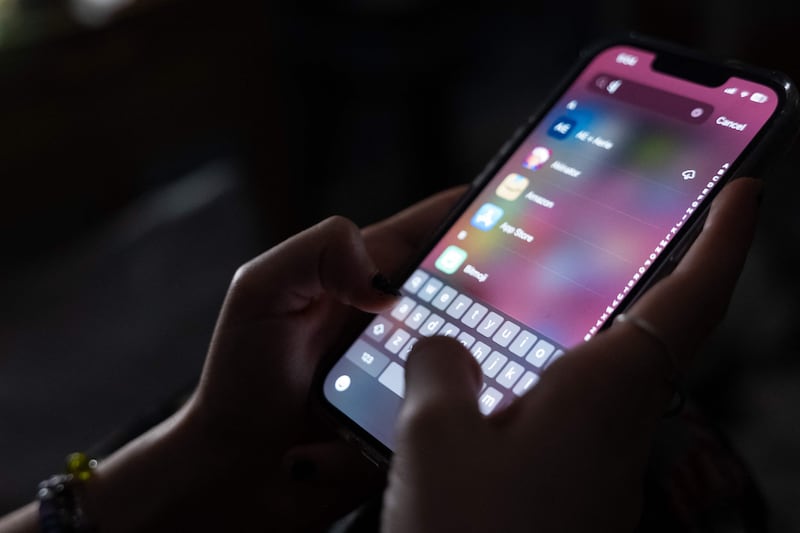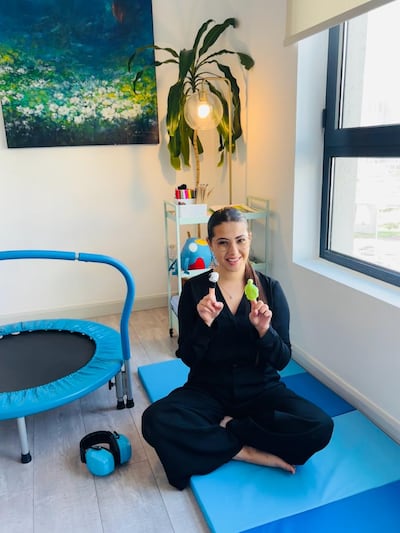Teenagers are vulnerable to accepting advice from unqualified influencers on social media, say health professionals

.Anam Rizvi Listen In EnglishListen in ArabicPowered by automated translation
Young people following dangerous diet trends and accepting health advice from social media influencers have been warned about the adverse health effects by experts.
From eating only chicken breast or raw carrots to replacing meals with protein shakes, some young people in the UAE and abroad are blindly following social media trends, which can cause serious illnesses.
Kanika Hughes, co-founder, chef and nutritionist of Leela’s Lunches, who provide meals to schools and nurseries in Abu Dhabi and Dubai, said many pupils get “their nutritional information off Instagram”.
When it comes to health and wellness, there’s no hackKanika Hughes, co-founder of Leela's Lunches
“Just about anybody with six pack abs or anybody who’s a trainer, they follow them and they’ll do this one size fits all approach,” said Ms Hughes.
“This can be really dangerous because this is just not the way we’re supposed to be thinking about food.
“I really worry about how social media influences nutrition trends in a way that didn’t exist 10 years ago.”
She warned young people against taking health or skincare advice from influencers who were not qualified for the job.

Dangerous diet trends circulating online, such as only eating carrots, can damage your health experts say. Getty
While giving a talk at a school in the UAE, Ms Hughes asked pupils about popular food trends and found many had tried diets including a coffee cleanse or eating only raw carrots.
“These are just the kind of bizarre things you would not expect a 15-year-old to get into,” said Ms Hughes.
“My main problem is this notion of a quick fix. When it comes to health and wellness, there’s no hack.”
Excessive social media use has been linked with a decline in mental health, with the Arab Youth Survey 2023 finding that 60 per cent of young Arabs thought it was having a harmful impact on their mental well-being.
Just under three-quarters of those surveyed, 74 per cent, said they were struggling to disconnect from social media.
Faten El Hajj, a mum of two in Dubai, said her 16-year-old son preferred to follow the recommendation of social media influencers rather than a doctor when choosing acne medication.
“One advantage was that [social media] encouraged them to go to the gym, but at the same time, they started asking to buy protein powder, as well as creatine powder, which is causing serious health issues at this age,” said Ms El Hajj.
“When he turned 15 and started having acne on his face, he wanted to take Accutane (Isotretinoin).
“We consulted a doctor who advised him not to go through this, but he was not trusting the doctor and trusted those influencers more than the doctors.
“In addition to promoting unhealthy behaviours, influencers can have a negative impact on our younger children’s mental health because the social media platforms are designed to be addictive. So many young people are spending hours scrolling through feeds.
“It reached the level that they are comparing themselves to others and it leaves them feeling inadequate somehow.”
One size doesn’t fit all

Olivia Izzo, a psychotherapist who specialises in child and adolescent mental health at The Psychiatry and Therapy Centre, says the impact of influencers can be dangerous. Photo: Supplied
Olivia Izzo, a psychotherapist who specialises in child and adolescent mental health at The Psychiatry and Therapy Centre in Dubai, said she had seen a lot of young people interested in influencer diets.
She noted the extremity of the situation, with children between the ages of 14 and 17 influenced by beauty, wellness, and diet trends, and others obsessed with junk food.
“It’s up to your nutritionist, it’s up to your doctor, to decide what your best meal plan is. It’s not up to an influencer and this is why it’s so dangerous,” said Ms Izzo.
“Not everyone can tolerate all these kinds of diets and it can be dangerous, because it’s not been medically suited to that individual person.
“If we’re always comparing ourselves to this fitness influencer or wellness influencer, we’re never truly going to be happy because we’re not focusing on ourselves and who we want to be. We’re just aspiring to copy someone else.”
Brilliant Mhlanga, professor of strategic communication and media at Abu Dhabi University said parents, schools, authorities and the government should come together to put clear and effective policies in place.
“At any given time, each generation has [something negative] that impresses it,” he said.
“It is in those times that parents and schools and the relevant authorities have to come in and come up with policies that will actually stop those things from happening.”
The companies behind influential social media platforms have long said that they spare no effort in shutting down harmful content when shared by users.
Lynn Sutton, TikTok’s head of Outreach and Partnerships, Trust and Safety EMEA, was at TikTok’s MENAT Youth Mental Health Summit in Dubai last week where she said they aimed to protect people by having safeguards in place.
Read More Call for social media to be taught in schools amid online mental health concerns
“Our community guidelines are designed to ensure the platform remains a positive and inclusive space for everyone. We take action to address potential challenges,” said Ms Sutton.
“We diversify content within the newsfeed. If we see a trend is happening again, and again, and again, or something is picking up popularity, we have detection models that will take that, then go and do an investigation.”
Updated: February 21, 2024, 10:24 AM










